Guns and Hunting
This State Has Some of the Weakest Gun Control Laws in the Country
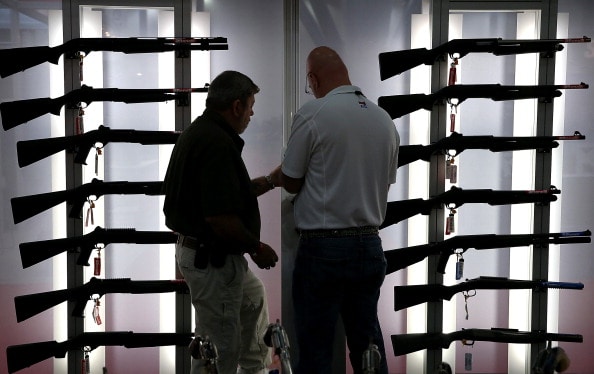
Published:

24/7 Wall St. Insights
The United States is one of only a handful of countries where gun ownership is a constitutional right. While federal law restricts access to firearms for certain groups — including felons, illegal drug users, and fugitives — and effectively prohibits civilian ownership of specific types of firearms — such as fully automatic weapons and short-barreled shotguns — the U.S. has some of the least restrictive gun laws in the world.
The growing regularity of mass shootings in recent decades have caused many to call for tighter firearm restrictions. This, in turn, has made gun control one of the most polarizing issues in American politics. According to a 2023 Gallup survey, 84% of likely Democratic voters say that gun laws should be stricter, compared to only 31% of likely Republican voters.
The partisan divide over gun control has resulted in little beyond political gridlock in Washington D.C. In the absence of legislative action on Capitol Hill, many states have exercised their authority to expand upon federal gun control policies. Others, meanwhile, have adopted a decidedly hands-off approach.
According to the analysis of Giffords Law Center, a gun violence prevention group, Texas has some of the weakest gun control laws in the country. Accounting for a wide-range of policies at the disposal of state governments — including assault-style weapon and high-capacity magazine bans, universal background check laws, waiting periods, and restrictions on firearms in public — Gifford’s Law Center assigned Texas a letter grade of “F”, on an A-F scale, for the strength of its gun control policies. (Here is a look at every state’s gun law grade.)
Firearm regulations are generally designed and implemented to reduce the likelihood of gun violence, and in states where gun control takes a backseat to gun rights, firearm fatality rates are often higher than average. According to the data from the Centers for Disease Control and Prevention, there were 4,630 firearm related deaths in Texas in 2022, or about 15.3 for every 100,000 people, the 25th lowest gun-death rate of the 50 states. (Here is a look at the U.S. cities where gun crime is surging.)
Using data compiled by Gifford’s Law Center, 24/7 Wall St. reviewed Texas’ approach to 14 key gun control policy areas. It is important to note that the laws on this list are not exhaustive, and only represent broad guidelines. Legal nuances can vary at the state and local levels.
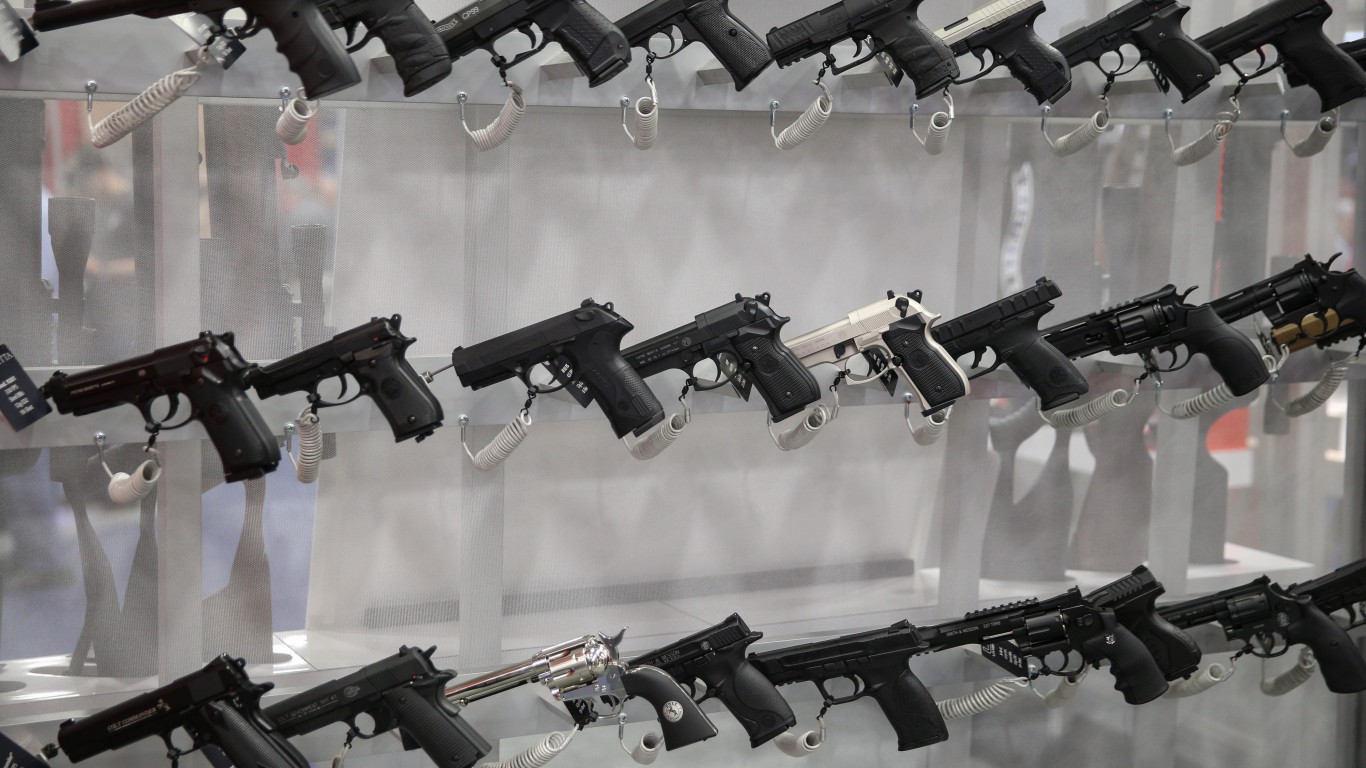
With the exception of some modest revisions to background check protocols, the U.S. has not implemented any meaningful gun control reform in decades. Still, state governments also have the authority to enact their own policies, resulting in a patchwork of gun laws across the 50 states. Currently, Texas ranks as having some of the weakest state-level firearm regulations in the country.
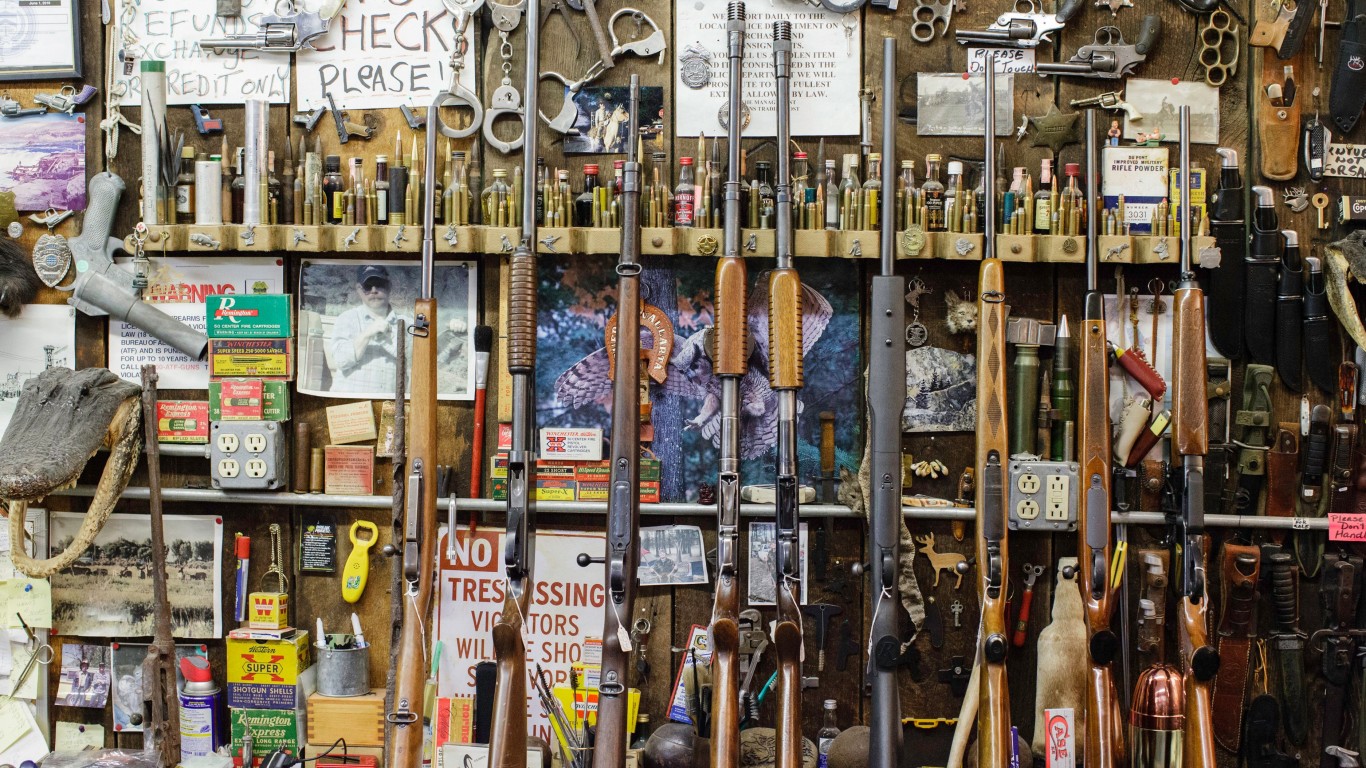

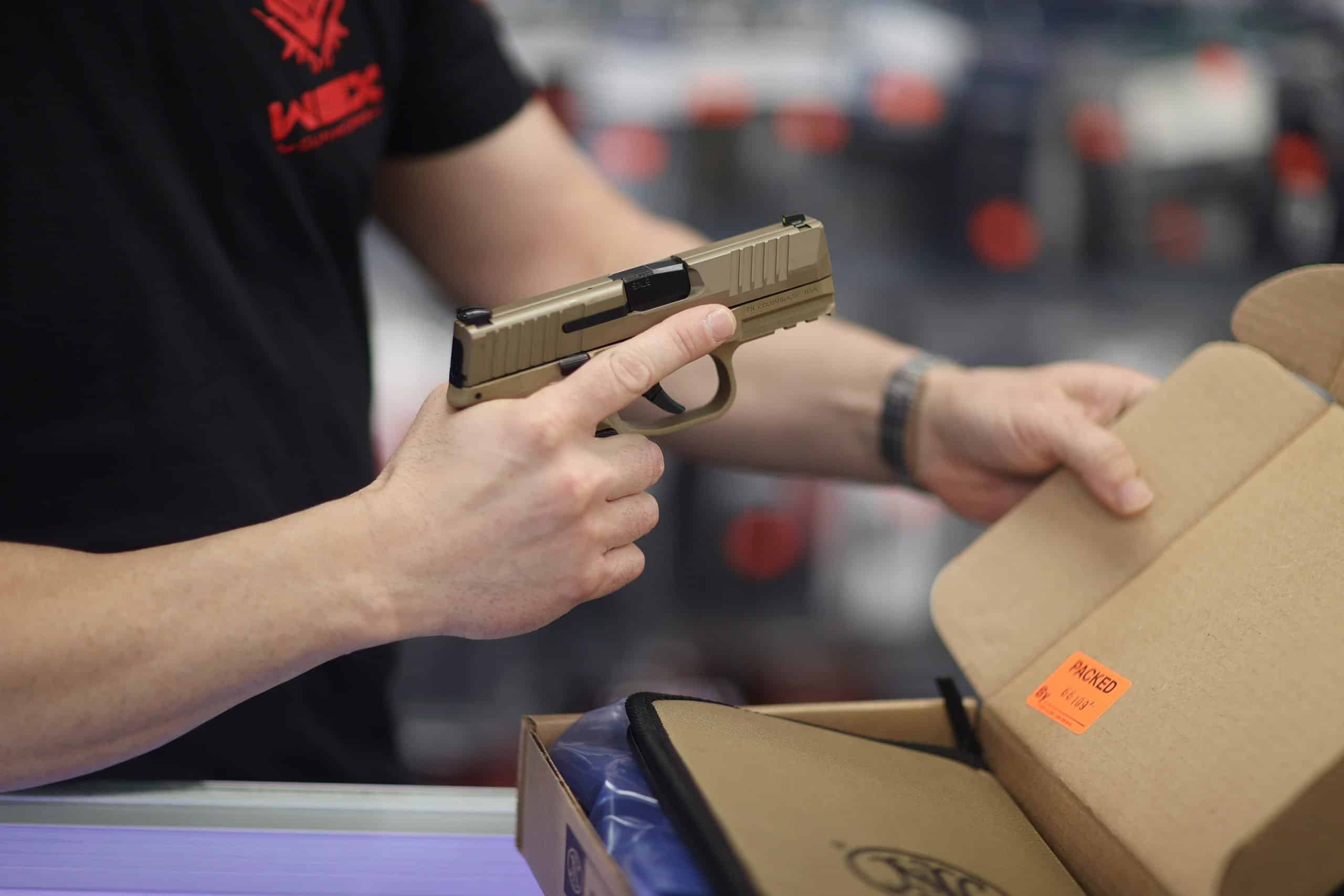
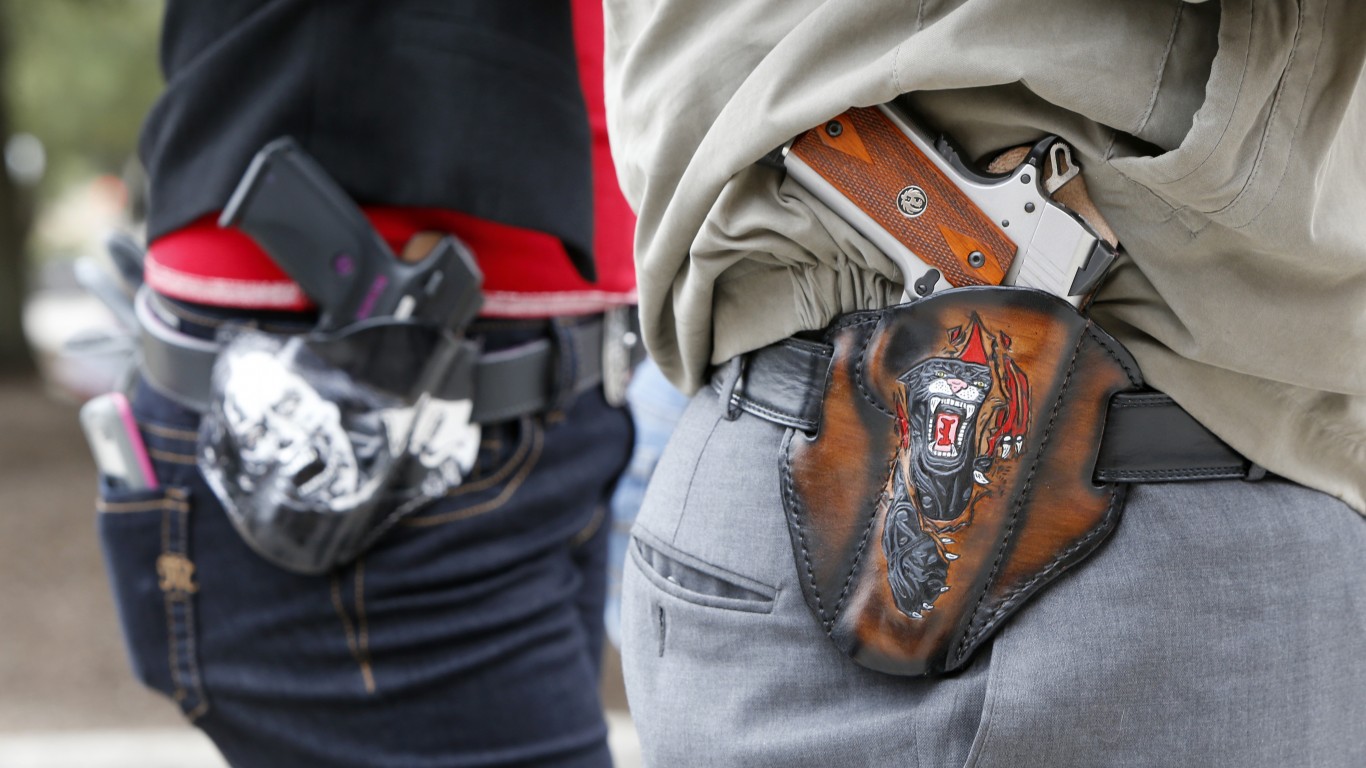
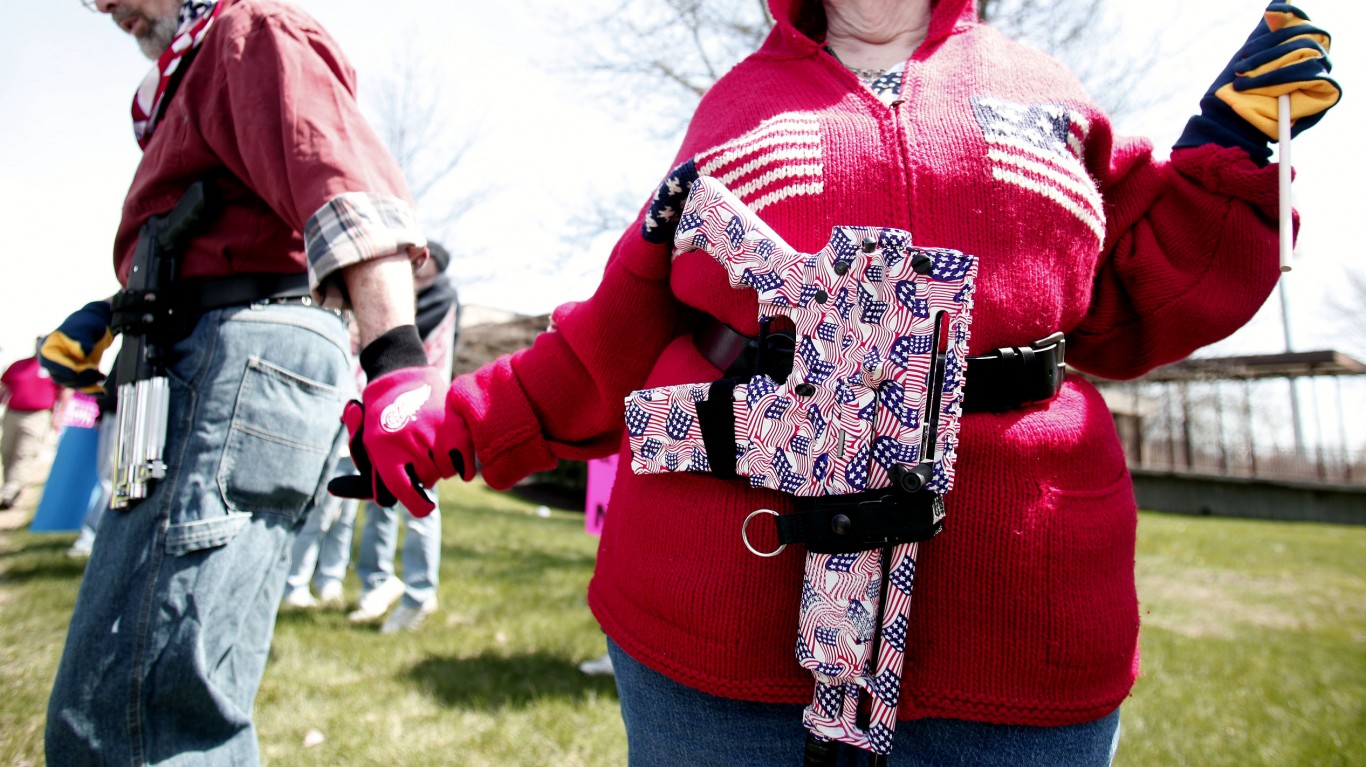


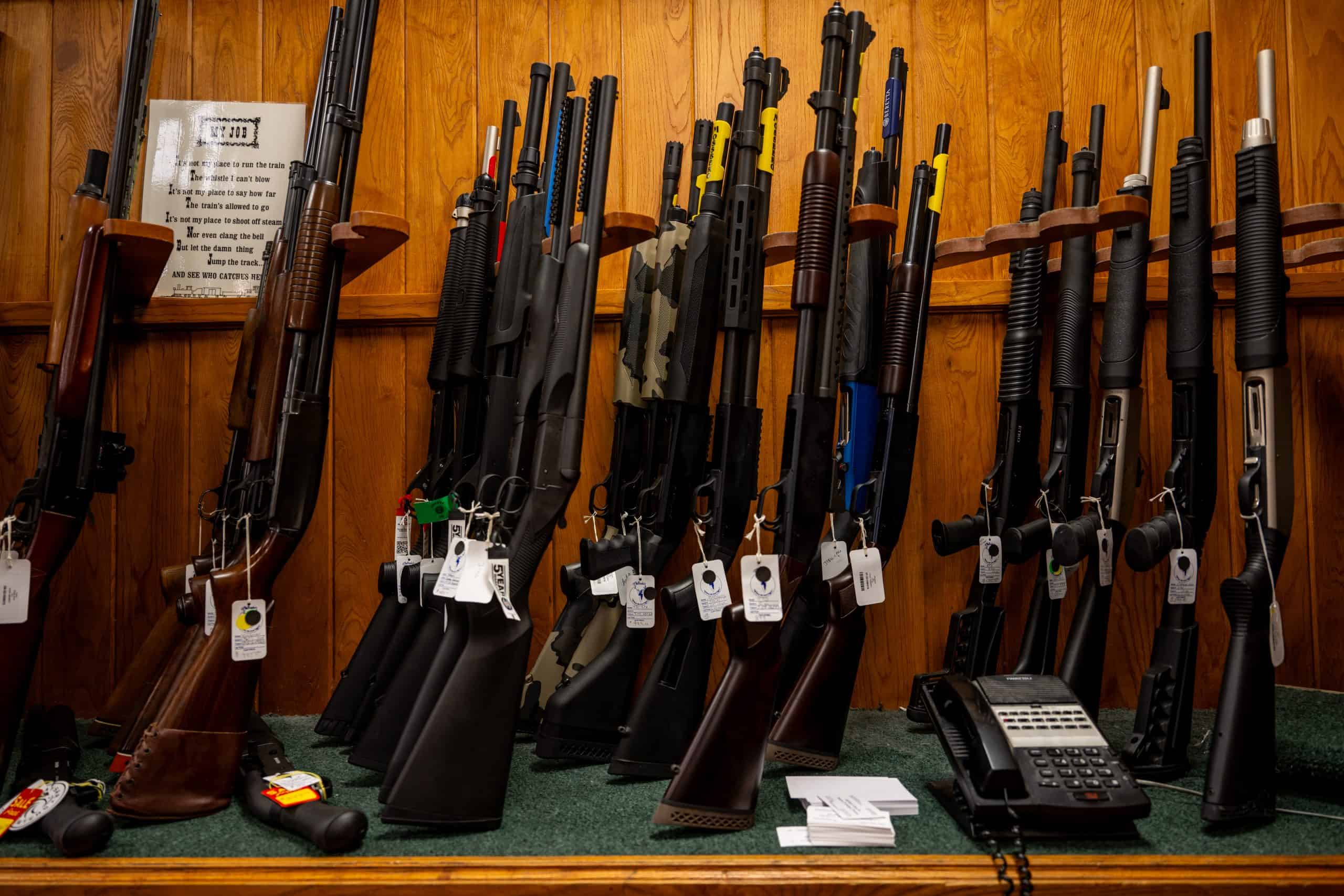
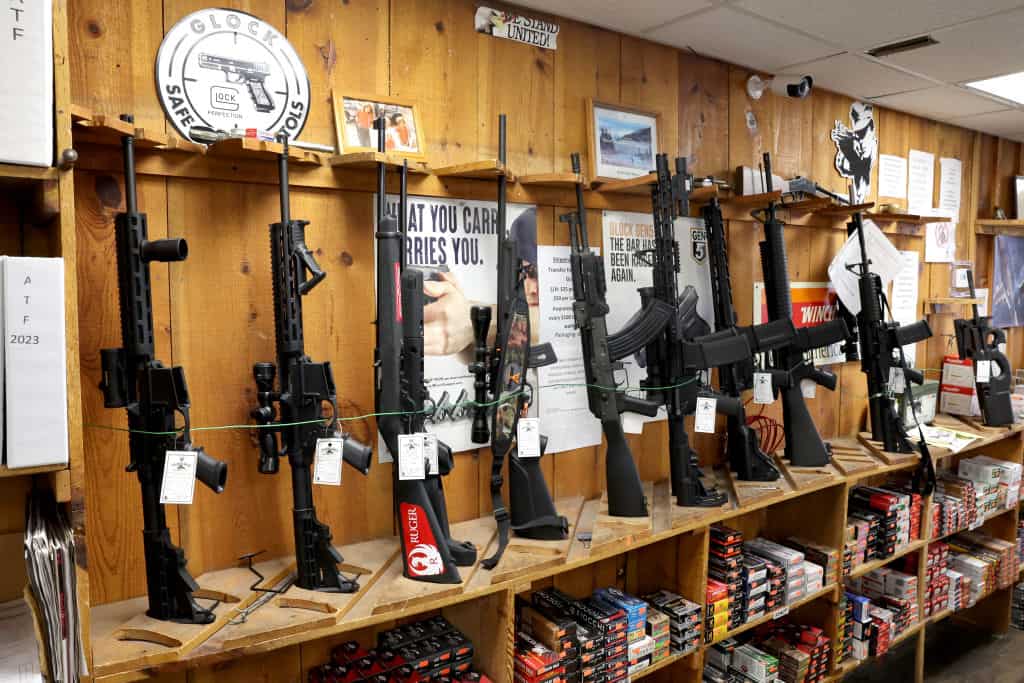
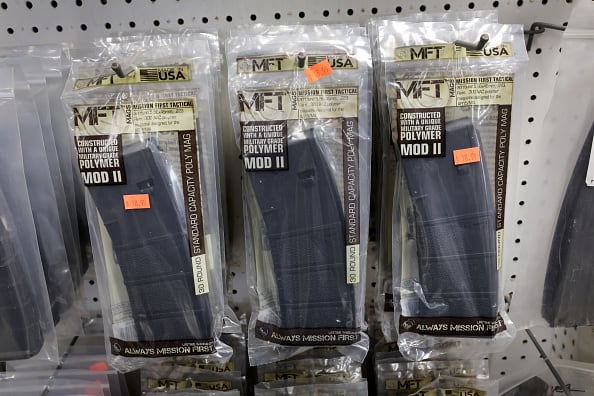

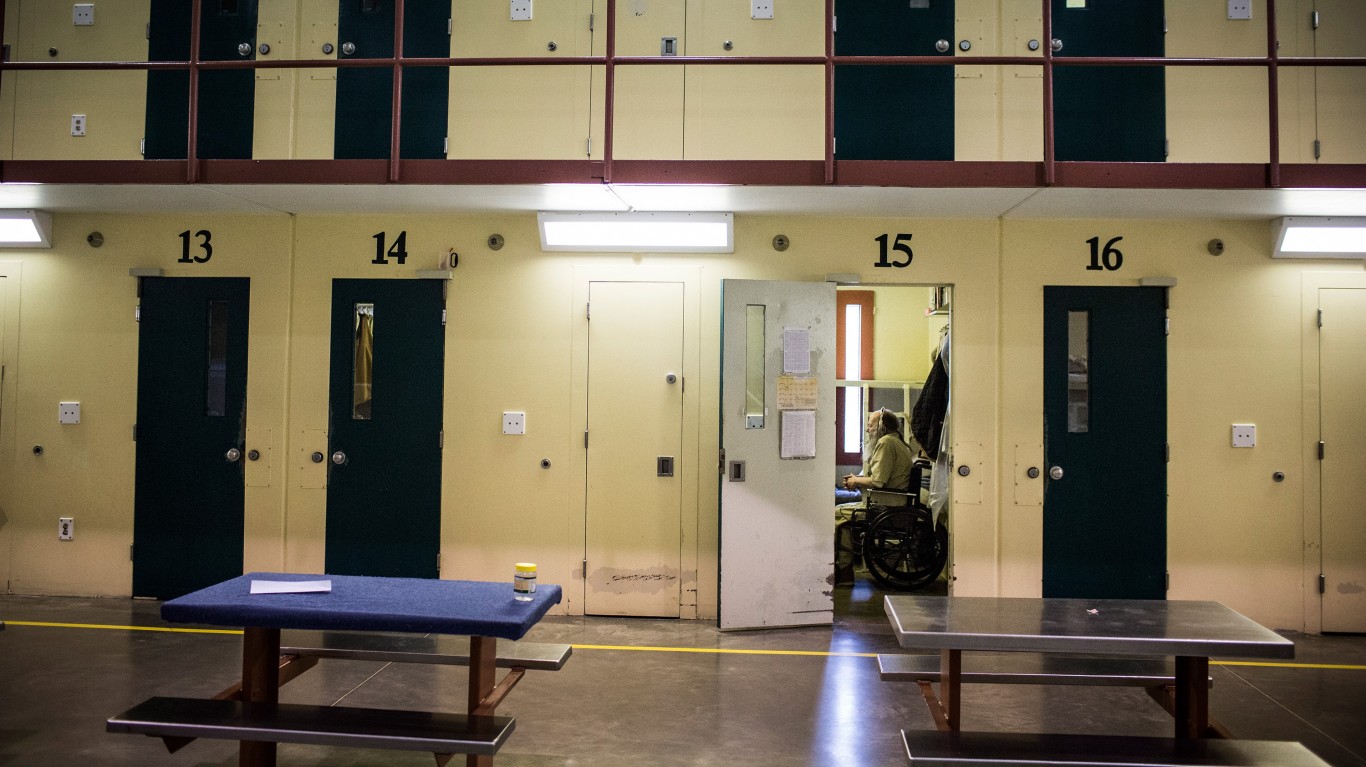
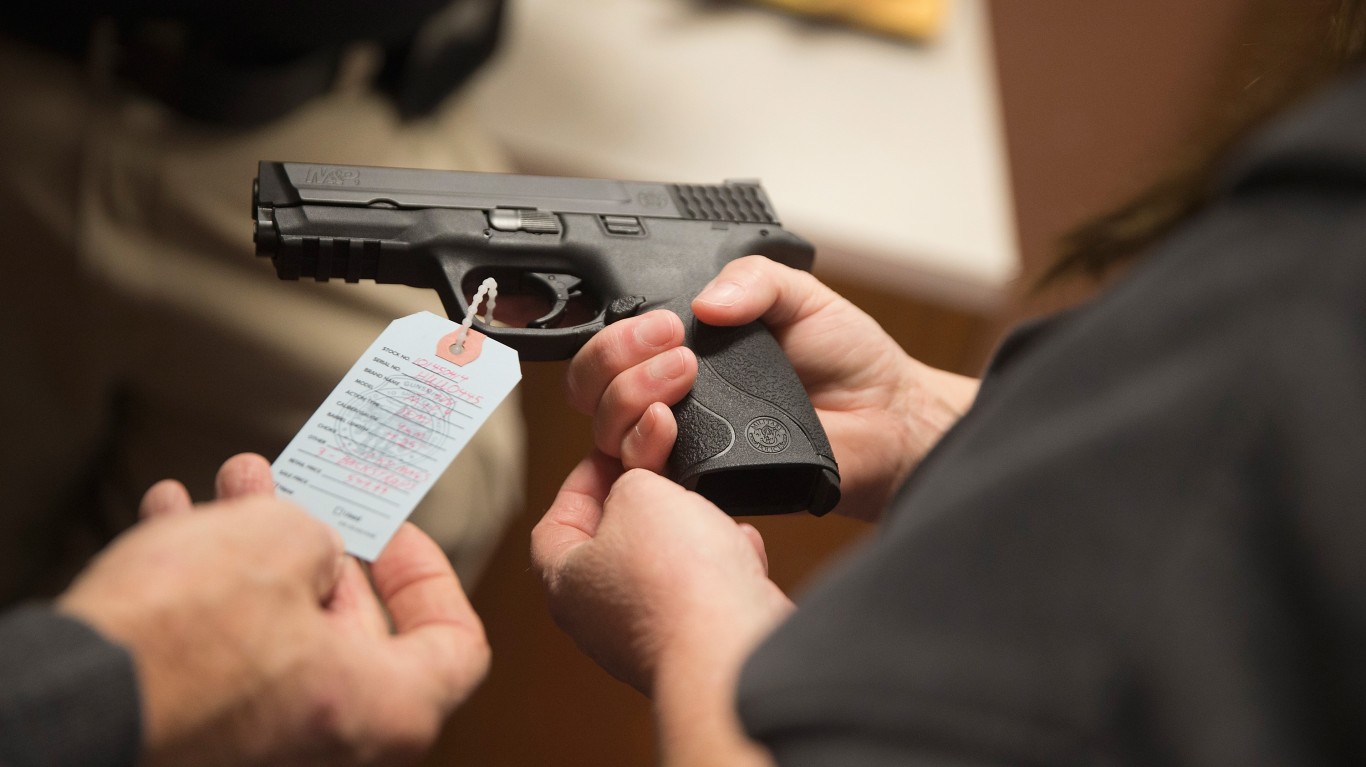
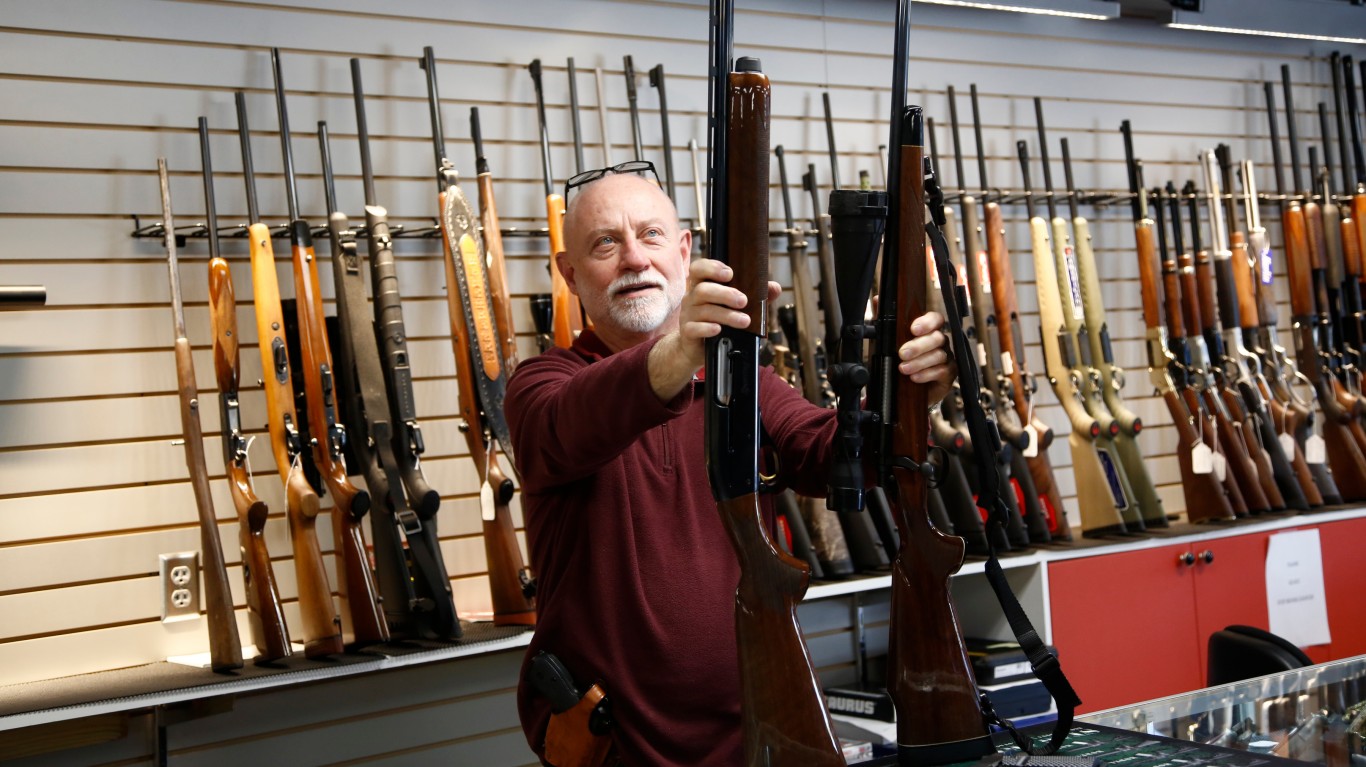
Start by taking a quick retirement quiz from SmartAsset that will match you with up to 3 financial advisors that serve your area and beyond in 5 minutes, or less.
Each advisor has been vetted by SmartAsset and is held to a fiduciary standard to act in your best interests.
Here’s how it works:
1. Answer SmartAsset advisor match quiz
2. Review your pre-screened matches at your leisure. Check out the advisors’ profiles.
3. Speak with advisors at no cost to you. Have an introductory call on the phone or introduction in person and choose whom to work with in the future
Thank you for reading! Have some feedback for us?
Contact the 24/7 Wall St. editorial team.